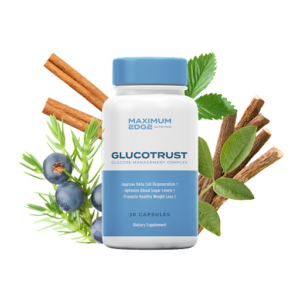
Exploring the Nutritional Value of Mussels: Nutrition Facts and Health Benefits
Mussels Nutrition
When it comes to seafood, mussels are a true gem, offering exquisite flavor and an impressive nutritional profile. In this post, we will delve into the nutritional value of mussels, uncover their crucial nutrition facts, and explore the many health benefits they provide. Let’s embark on a journey to discover the power-packed goodness of mussels and why they should be a part of your healthy eating plan.
- A Closer Look at Mussels’ Nutrition Facts:
Mussels are a nutritional powerhouse, providing a wide range of essential nutrients in every serving. Here’s a breakdown of the vital nutritional components found in a 3.5 oz (100g) serving of cooked mussels:
– Calories: 172
– Protein: 24g
– Total Fat: 4g
– Saturated Fat: 1g
– Omega-3 Fatty Acids: 0.5g
– Carbohydrates: 7g
– Fiber: 0g
– Sugars: 0g
– Vitamins and Minerals:
– Vitamin B12: 20.4 mcg (850% of the Daily Value)
– Iron: 6.7 mg (37% of the Daily Value)
– Selenium: 48.7 mcg (88% of the Daily Value)
– Zinc: 2.3 mg (21% of the Daily Value)
- Exceptional Nutritional Value:
Mussels are a nutritional powerhouse, offering an impressive array of essential nutrients contributing to overall health and well-being. Let’s explore some of the key benefits:
– Protein Powerhouse: With a high protein content of 24g per serving, mussels are an excellent source of lean protein, necessary for tissue repair, muscle growth, and immune function.
– Rich in Vitamins and Minerals: Mussels are abundant in vital nutrients, including vitamin B12, iron, selenium, and zinc. Vitamin B12 supports nerve function and red blood cell production, while iron helps transport oxygen. Selenium and zinc contribute to immune function and support various physiological processes.
– Omega-3 Fatty Acids: Mussels contain omega-3 fatty acids, including EPA and DHA. These healthy fats are known for their anti-inflammatory properties and numerous benefits, including heart health, brain function, and reduced risk of chronic diseases.
- Low in Calories and Fat:
Mussels offer a nutritious and guilt-free dining option. With only 172 calories and low levels of saturated fat per serving, they are an excellent choice for those aiming to maintain a healthy weight or follow a balanced diet.
- Boosting Your Health with Mussels:
Incorporating mussels into your diet can have numerous health benefits, including:
– Supporting heart health and reducing the risk of cardiovascular diseases due to their omega-3 fatty acid content.
– Promoting brain function and cognitive health, thanks to mussels’ omega-3 fatty acids and vitamin B12.
– Boosting immune function and protecting against oxidative stress with the help of selenium and zinc.
– Supporting energy production and preventing iron-deficiency anemia with the iron and vitamin B12 found in mussels.
Conclusion:
Mussels are a culinary delight and a nutritional powerhouse, offering an impressive range of essential nutrients. With high protein content, omega-3 fatty acids, and abundant vitamins and minerals, mussels provide various health benefits. So, consider adding mussels to your menu next time you’re planning a seafood feast. Indulge in the delicious taste and reap the nutritional rewards of these mighty mollusks.
- What does Prediabetic Mean? Understanding the Early Warning Signs and Risk Factors
- Understanding the Glycemic Index of Cucumber(0): A Comprehensive Guide
- Exploring the Nutritional Value of Mussels: Nutrition Facts and Health Benefits
- Monster Energy Nutrition Facts: Unveiling the Ingredients and Their Purpose
- Coke Zero Nutrition Facts Unveiled: A Healthier Alternative to Regular Soda?
- Unlocking the Nutritional Power: Kale(15) and Kala Chana(30) Glycemic Index Revealed
- Pickles Glycemic Index:(30) A Low-GI Snack
